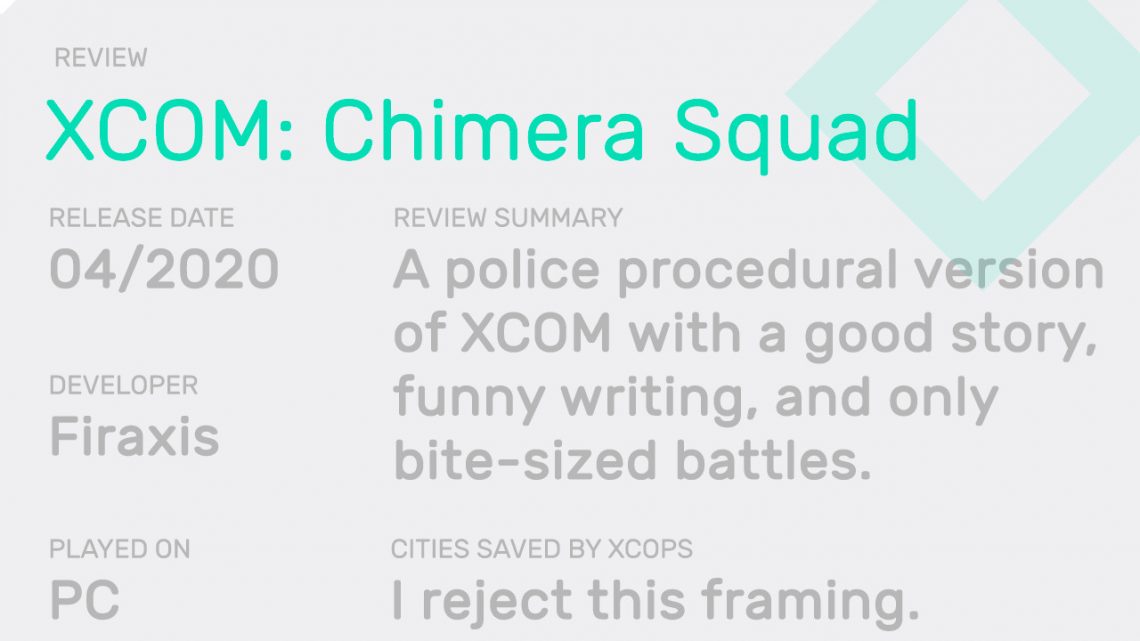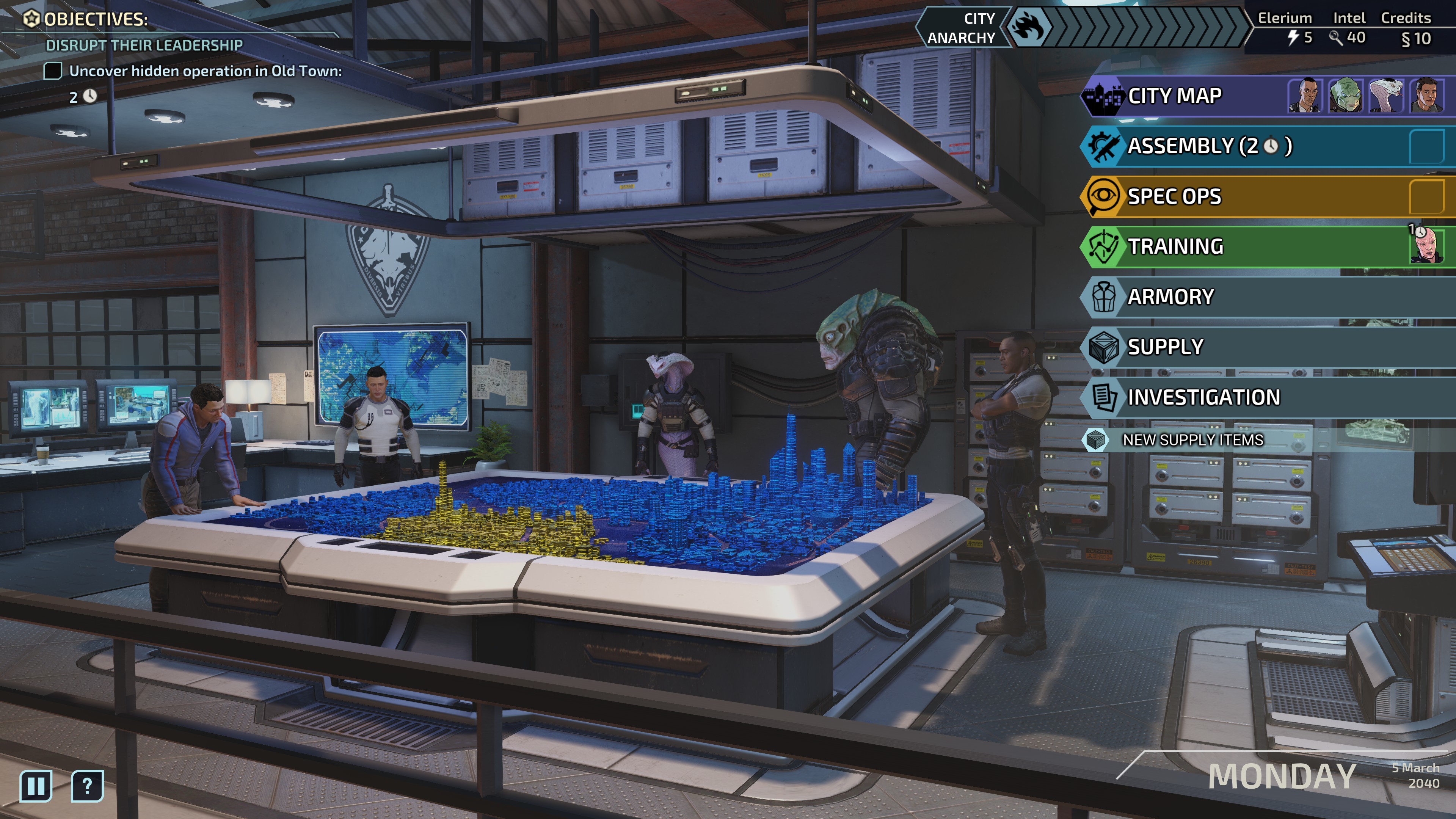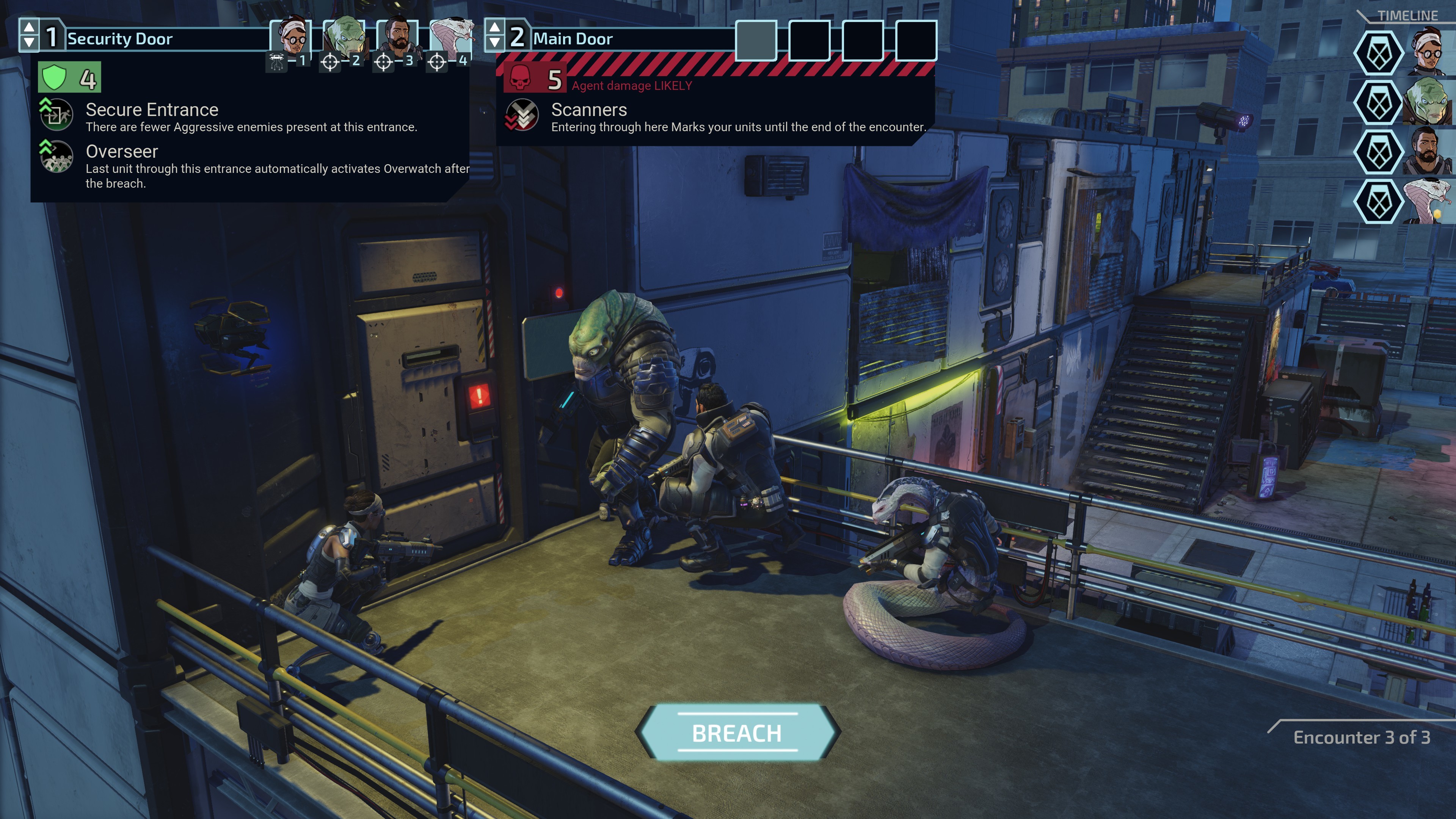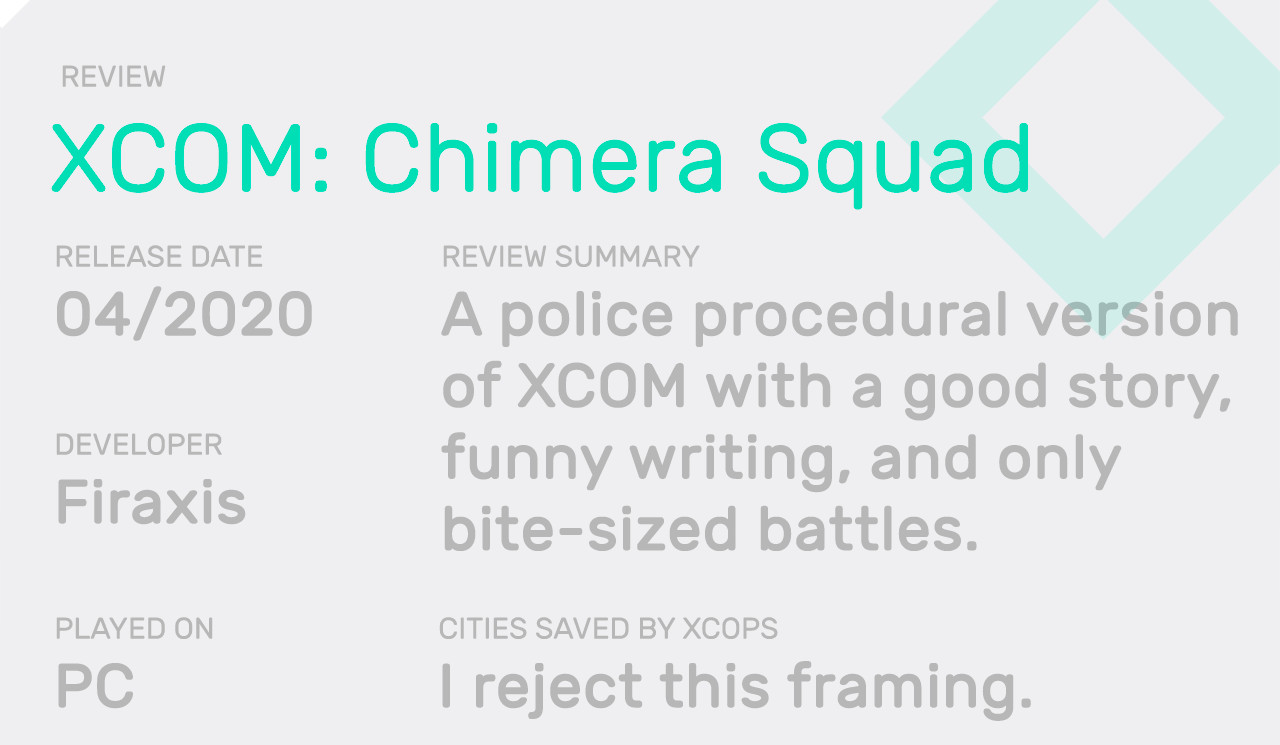
‘XCOM: Chimera Squad’ Takes on Sci-Fi Police Work and Claustrophobic Combat
April 24, 2020There’s a moment in most XCOM missions where you’re in enough danger that you need to slow down and really think about your order of operations, and the worst things that could happen on the enemy turn. In XCOM: Chimera Squad, that moment is meant to be the whole battle. The result is a game with a lot of tension but not much suspense, which might perfectly suit its narrative of a postwar peacekeeping version of XCOM.
XCOM: Chimera Squad takes place years after the Advent have been driven off Earth, abandoning many of the enslaved, genetically modified races they used for cannon fodder. The remnants of humanity, the surviving rebels who mutinied or subverted the Advent occupation from within, and the people who stayed loyal or at least obedient to the Advent are all trying to figure out what peaceful coexistence can look like. The optimistic answer is City 31, a model, high-tech city where diverse communities can live in peace… until a terrorist attack kills the mayor and rekindles fears that the war will return. Enter Chimera Squad, an elite police unit created by XCOM sent to solve the mystery behind the terrorist attack and carry out the kinds of assault missions that are more XCOM’s domain than the local cops’.

If that already sounds like there is more narrative in the premise for Chimera Squad than there is across the two prior XCOM games, that’s because Chimera Squad is quite self-consciously mimicking cop shows rather than sci-fi war movies like Aliens. The central hub of Chimera Squad is the makeshift precinct house where the officers banter, get directives from their CO or the local politicians, and get news bulletins from City 31’s AM-radio like media landscape. Each day, you go to a district map of the city to see which neighborhoods have missions on offer, and which ones are starting to experience unrest. If unrest gets bad enough in a district, it raises the difficulty for missions set there and, if it gets completely out of hand, it can start causing the city to advance along an Anarchy track toward the complete civil collapse that is your “game over” outcome.
You prevent this by doing missions in affected areas and by building field teams that provide regional bonuses around the city, which makes the strategic layer of Chimera Squad a lot like the “whack-a-mole” world map of the original game, with its constellation of morale boosting satellites. Outside those missions, you do the usual XCOM stuff of researching new equipment, buying gear, and having your officers go on special missions to earn one of the game’s currencies or to train them up for some new bonuses.
One reason Chimera Squad can focus so much on the interplay of personalities is because all your units are fixed, premade characters now. Rather than customizing your own soldiers along archetypal character class lines, each is now a unique character in the story of Chimera Squad, as well as having their own tree of special abilities. For instance, the squad’s Sectoid-hybrid psychic, Verge, might not be the game’s only psychic, but he is the only character who can mind-control enemies or stupefy them. No other character can do what Torque, your ex-Advent Viper commando, can do—on account of no other character being a giant snake. Torque can yank enemies out of cover or friends to safety using her whip-like tongue, and she can wrap-up adjacent enemies like a constrictor.

You have to get the most out of all these characters and their synergies, because Chimera squad is a long way off from the game of careful map-exploration and escalating combat that forms the core of the main XCOM games. Instead of being deposited at the edge of a map and moving toward an objective, Chimera Squad cuts to the chase with a “breach” phase as your assault team bursts into a small, enclosed combat encounter. It’s reminiscent of the planning phase of the early Rainbow Six games, or the first Frozen Synapse, or the SWAT game Door Kickers.
Each mission comprises some number of these small maps, and each new map opens with a breach phase. A breach phase might let you choose between sending some of your squad in through the front door of a building, or using an explosive to blast open a wall and approach from an unexpected flank. Most of your characters have special abilities that are only usable during breaches, like the way shield-equipped Cherub can use his Phalanx ability to force enemies to shoot at him during the breach phase. But for the most part, breaches are when you get a lot of easy shots on stunned, out-of-position enemies. If you are efficient during breaches, you’ll fight easier battles. If you waste the opportunity that a breach represents, you’ll end up in a slugging match that you can ill-afford.

Because once you’re into the battle in one of the claustrophobic, largely interior settings that provide the stage for Chimera Squad’s action, turns unfold via an initiative order rather than the “I go, they go” order of typical XCOM battles. In a battle with 10 characters on the screen, you might have the first two moves, but the enemy might get several in a row before one of your other characters gets a move. So every single move, you have to be thinking about the next characters who will be going in the initiative order, and how you can delay or prevent enemies from ever getting their moves. Stuck in these tiny maps, taking cover and adopting overwatch postures won’t get the job done. You have to wring the most from your characters’ special abilities and items to tip the scales in your favor.
Depending on your taste (and even the mood you’re in when you sit down to play), Chimera Squad can feel like an XCOM that skips to the good parts of the combat… or saps it of its drama and pacing. It doesn’t do itself any favors with an interface that throws up weird errors and seems actively hostile to mouse-and-keyboard controls. But at its best, it regularly conjures the satisfying magic of The Perfect Turn, where it feels like you’ve cracked the game open and used every one of its tools to dominate a fight that felt stacked against you. More often, my feelings about it are equivocal: it’s a game of clever-but-cheesy tactics, not dramatic battles.
The thing that elevates it above this morass of ambivalence is its overall charm. Chimera Squad tells a good story and builds a compelling postwar world out of XCOM 2’s simple premise. The characters have good chemistry, and the world is drawn with a mix of good humor and noir-ish intrigue. As spin-offs go, Chimera Squad’s police procedural is an unexpected and promising pilot episode.


